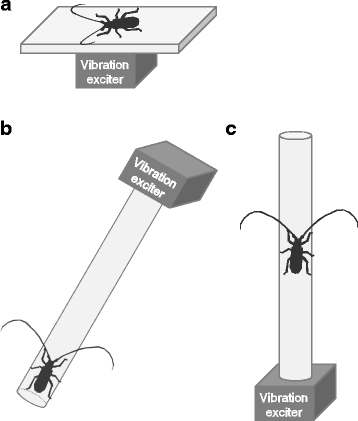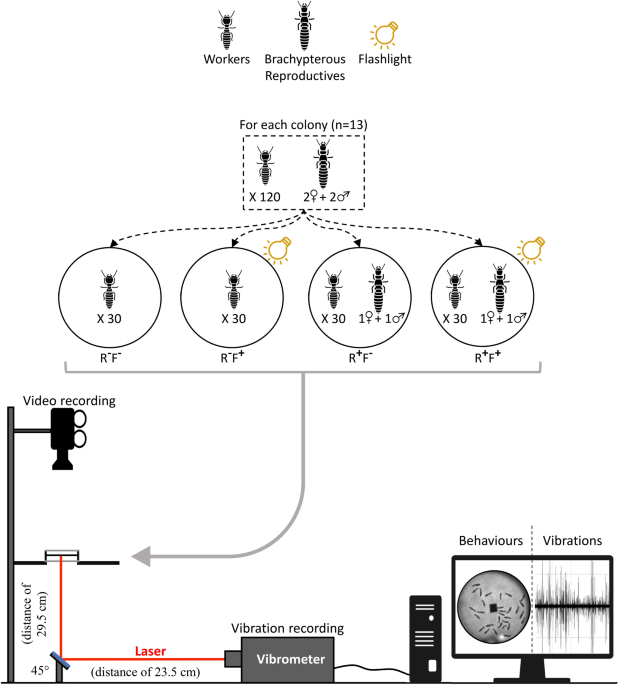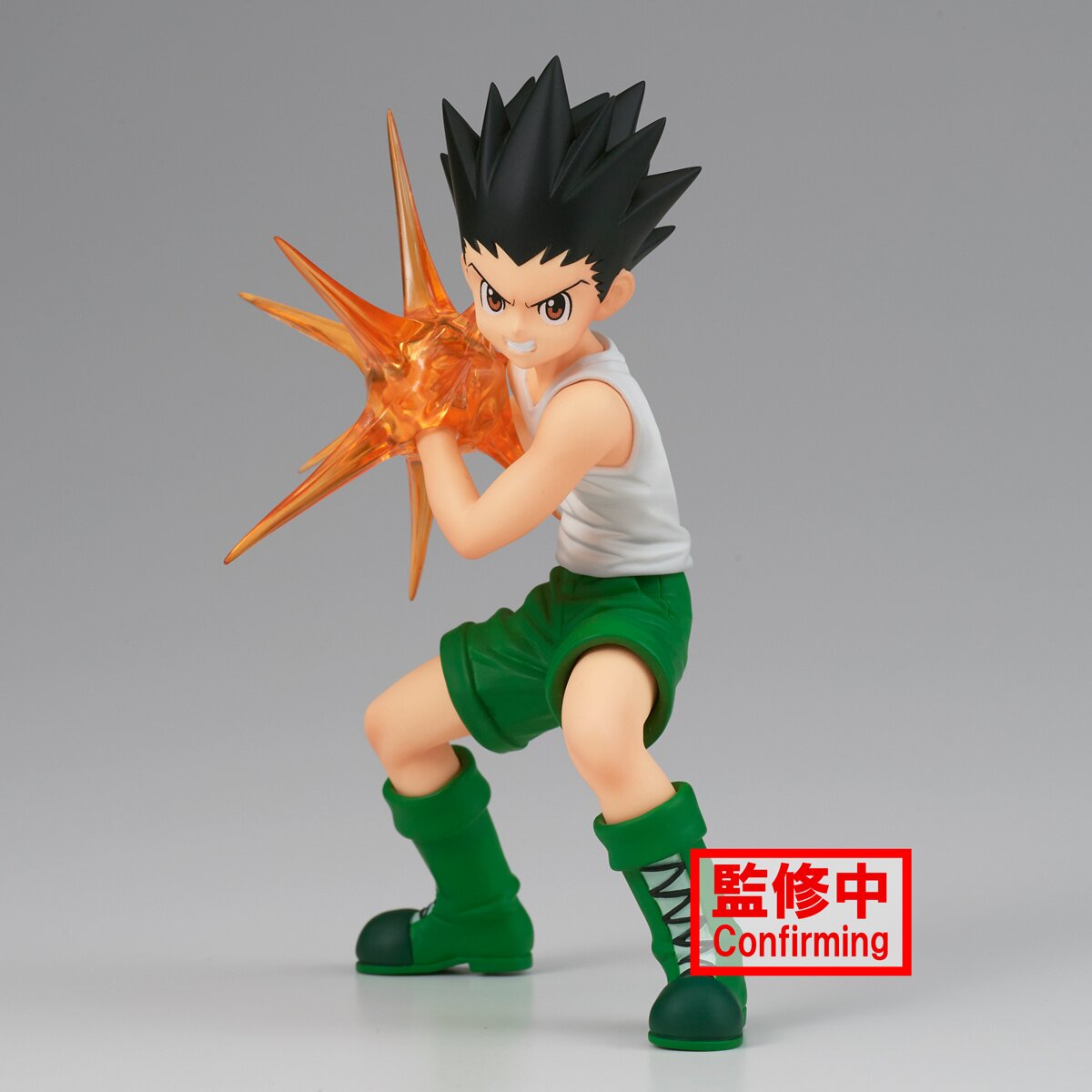
Substrate vibrations mediate behavioral responses via femoral chordotonal organs in a cerambycid beetle, Zoological Letters
Background Vibrational senses are vital for plant-dwelling animals because vibrations transmitted through plants allow them to detect approaching predators or conspecifics. Little is known, however, about how coleopteran insects detect vibrations. Results We investigated vibrational responses of the Japanese pine sawyer beetle, Monochamus alternatus, and its putative sense organs. This beetle showed startle responses, stridulation, freezing, and walking in response to vibrations below 1 kHz, indicating that they are able to detect low-frequency vibrations. For the first time in a coleopteran species, we have identified the sense organ involved in the freezing behavior. The femoral chordotonal organ (FCO), located in the mid-femur, contained 60–70 sensory neurons and was distally attached to the proximal tibia via a cuticular apodeme. Beetles with operated FCOs did not freeze in response to low-frequency vibrations during walking, whereas intact beetles did. These results indicate that the FCO is responsible for detecting low-frequency vibrations and mediating the behavioral responses. We discuss the behavioral significance of vibrational responses and physiological functions of FCOs in M. alternatus. Conclusions Our findings revealed that substrate vibrations mediate behavioral responses via femoral chordotonal organs in M. alternatus.

Anatomy of the stridulation apparatus of the beech leaf‐mining weevil and characterization of, and behavioral responses to, stridulation sounds - Goodwin - 2019 - Entomologia Experimentalis et Applicata - Wiley Online Library

Substrate vibrations mediate behavioral responses via femoral chordotonal organs in a cerambycid beetle, Zoological Letters
Sex-specific effects of a parasite on stress-induced freezing behavior in a natural beetle-nematode system

Central processing of leg proprioception in Drosophila
Sex-specific effects of a parasite on stress-induced freezing behavior in a natural beetle-nematode system

Central processing of leg proprioception in Drosophila

Central processing of leg proprioception in Drosophila

Central processing of leg proprioception in Drosophila

Central processing of leg proprioception in Drosophila

Central processing of leg proprioception in Drosophila

Central processing of leg proprioception in Drosophila

Substrate vibrations mediate behavioral responses via femoral chordotonal organs in a cerambycid beetle, Zoological Letters









